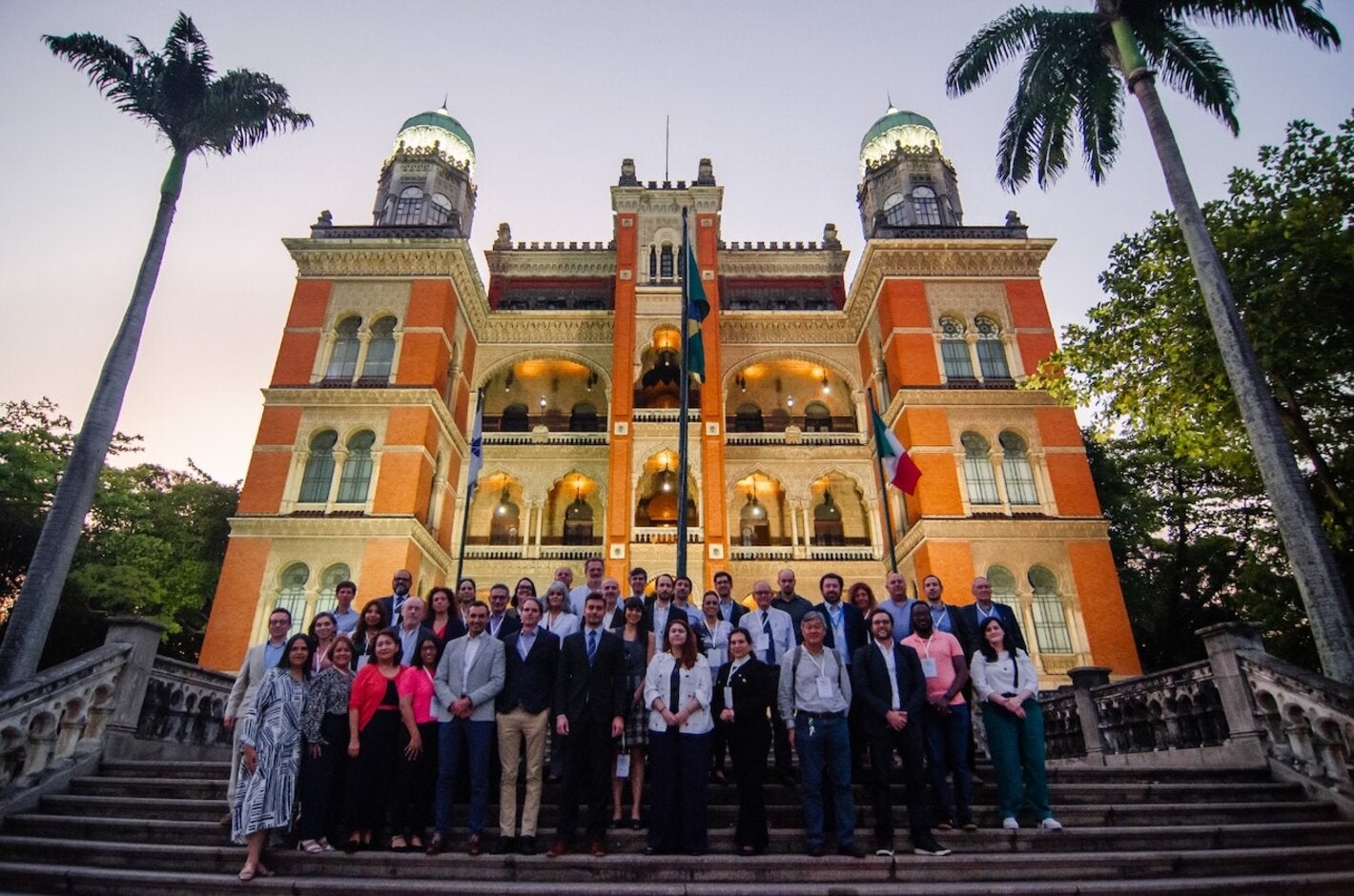
Rio de Janeiro - September 24, 2024 - (PAHO) - Within the framework of the event coordinated by the Pan American Health Organization (PAHO), the World Health Organization (WHO) and the Medicines Patent Pool (MPP), at the Bio-Manguinhos/Fiocruz headquarters, research institutions, vaccine producers, and international organizations discussed opportunities for the development and production of vaccines with mRNA technology in Latin America. During the meeting, several topics were addressed, including the burden of vaccine-preventable diseases, the identification of unmet needs, and opportunities for developing new vaccines with mRNA.
The meeting presented the progress and challenges and explored opportunities for collaboration in research and development (R&D) for diseases such as tuberculosis, influenza, and leishmaniasis, as well as for emerging infectious diseases such as hantavirus and Junin virus, among others. The possibility of developing other therapeutic applications and innovative solutions around the mRNA technology platform was also discussed, providing an opportunity for producers in the region to join and actively contribute to the development of these innovations to improve equitable access in the region.
During the meeting, which is part of a global and regional strategy to provide developing countries with the capacity to produce vaccines and other health technologies based on the mRNA platform, Tomás Pippo, Chief a.i. of the Special Program of PAHO's Regional Innovation and Production Platform, emphasized that “the participation and commitment of national and international institutions that promote innovation and scientific and technological development is crucial for the region to advance towards self-sufficiency in the production and equitable access to vaccines and other health technologies”. Claudia Nannei, director of the WHO's mRNA Transfer Program, said: “It is essential to create the conditions for sustainable vaccine development and production, which can be achieved through support for mRNA R&D. Latin America has a great opportunity to develop the capacity to develop and produce vaccines in a sustainable manner. Latin America has a great opportunity to develop a joint strategy”.
Maíra Ferreira Carneiro, General Coordinator of the Chemical and Biotechnology Base of the Brazilian Ministry of Health, emphasized that the strategy of the Brazilian Health Economic and Industrial Complex includes support for strategic alliances and global health initiatives to guarantee access to health technologies. Emphasizing the importance of ensuring the sustainability of innovation and production projects, Mauricio Zuma, CEO of Bio-Manguinhos, stressed that “the strategy to be sustainable in the medium term is to invest in our own technologies by strengthening local capabilities in research and development”.
The global mRNA vaccine technology transfer program is a joint initiative of the WHO and the MPP that seeks to strengthen mRNA vaccine production capacities in developing countries. The Regional Innovation and Production Platform of PAHO's Department of Innovation, Access to Medicines and Health Technologies contributes to and complements the implementation of this strategy in the Americas and provides technical cooperation to Member States to strengthen regional innovation and production capacities.
This meeting was attended by more than ninety (90) participants from Argentina, Brazil, Canada, Chile, Colombia, Cuba, the United States and Mexico; as well as participants from countries outside the region, including Belgium, the Netherlands, South Africa, Switzerland, Thailand and Tunisia.
This event was organized with the support of Global Affairs Canada (GAC).



